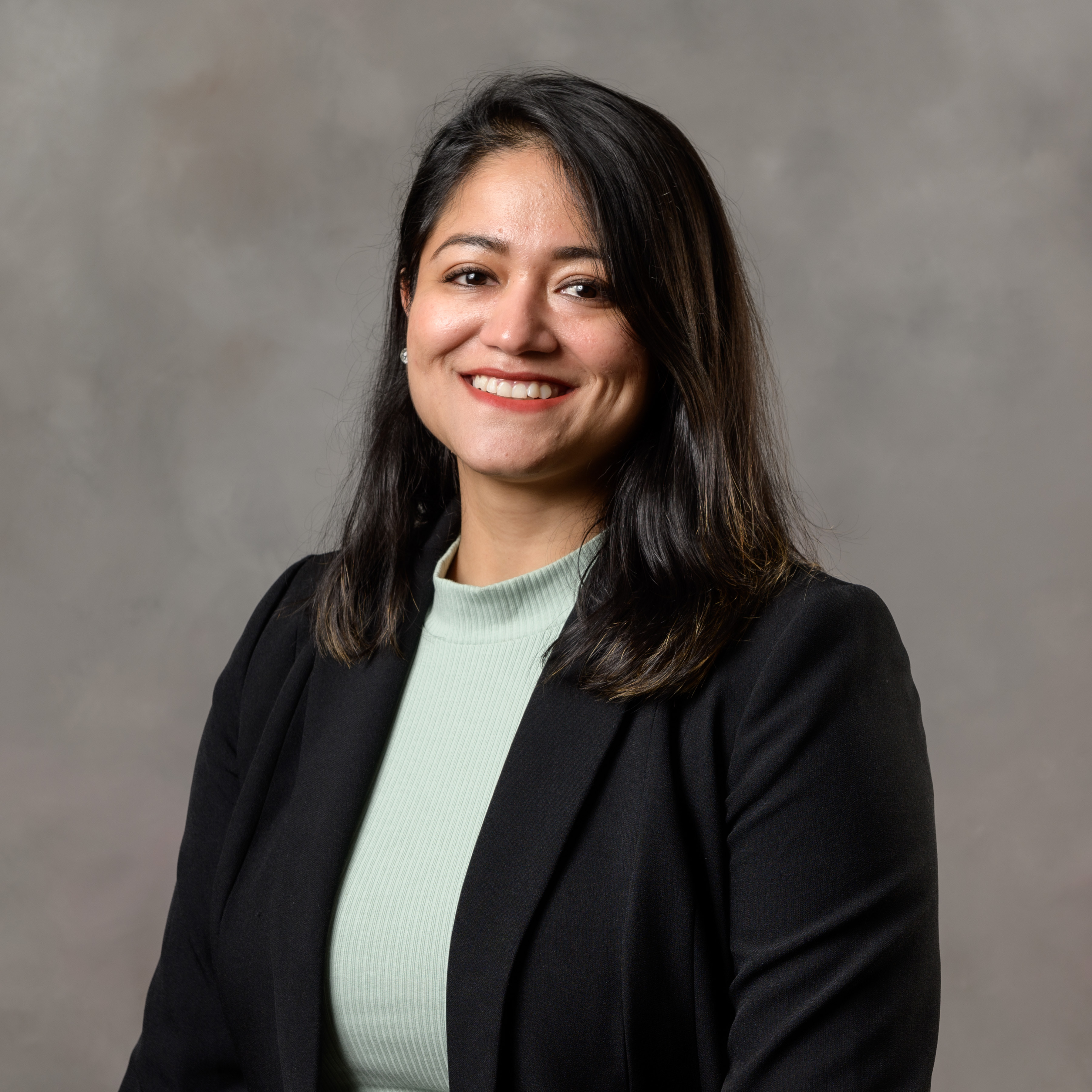Sagnika Ghosh
 Degrees
Degrees
Master of Science ('13)
Ph.D. in Engineering ('18)
Current Residence
Nashville, TN
Current Employer
Tennessee State University
What influenced your decision to attend Herff College of Engineering?
The supportive academic environment and opportunities for scholarships and funding
played a significant role in making my decision. The college's well-equipped labs
and research centers, offered the hands-on experience I was seeking. Additionally,
the strong ties Herff College had with industry and its emphasis on practical, real-world
applications made it an ideal choice.
How did Herff prepare you for your career?
Herff College of Engineering provided me with a strong foundation for my career through
advanced education and hands-on experience in Electrical and Computer Engineering
under the guidance of DR. Mohd. Hasan Ali. My degree was focused on power quality
enhancement and cyber-physical systems, prepared you to tackle complex issues related
to modern power grids, time delays, and cybersecurity. Herff college laid a strong
technical and research-oriented foundation that has been instrumental in shaping my
academic and professional achievements.
What skills or knowledge did you learn throughout the program that you found most
helpful in your career?
The program equipped me with several crucial skills and knowledge areas that have
been instrumental in my career. Power systems and grid technologies, especially in
enhancing power quality and integrating renewable energy sources, formed the backbone
of my research and teaching. Additionally, cybersecurity for smart grids provided
essential expertise in safeguarding energy infrastructure from emerging digital threats,
a growing concern in modern power systems. I also benefited from a strong foundation
in research methodology, learning how to approach complex engineering problems systematically,
which has been invaluable in securing research grants and publishing papers. Proficiency
in simulation tools like MATLAB and Simulink allowed me to model and analyze power
systems effectively. Lastly, the program emphasized project management and collaboration,
skills that prepared me to lead multidisciplinary research teams and handle large-scale
projects, both in academia and in collaboration with industry partners.
Who was your most impactful professor? Why?
Working with Dr. Mohd. Hasan Ali as my advisor for both your master's thesis and PhD
dissertation gave you deep expertise in power systems, optimal reclosing of circuit
breakers, and smart grid technologies. These experiences shaped my research direction
and teaching philosophy.
Were you involved in student groups? If so, which one(s)?
Indian Student Association: provided me a sense of community and belonging being so
far away from home.
IEEE: Gave me professional platform to harness my potential.
What support(s) did you have during your time as a college student? How did you keep
focused on the goal?
The Electrical and Computer Engineering Department has been instrumental in my journey
to being a professor. I started as a graduate student and without the financial support
from the college and the department, I wouldn't have been able to complete my degree.
What was your greatest memory from your time at Herff?
My greatest memory from my time at Herff College was successfully defending my PhD
dissertation on "Power Quality Enhancement of Modern Power Grid considering Time Delays
and Cyber-Attacks". It marked the culmination of years of hard work, research, and
collaboration with my advisor, Dr. Mohd. Hasan Ali. That moment symbolized not only
personal achievement but also the opportunity to contribute meaningfully to the evolving
field of smart grid technologies. The support and encouragement from faculty and fellow
students during that process made it an unforgettable and deeply rewarding experience.
What advice would you give those considering enrolling in Herff College of Engineering?
For students considering Herff College of Engineering, get involved in research early,
especially in cutting-edge areas like smart grids and renewable energy, photonics,
embedded systems. Take advantage of interdisciplinary opportunities, exploring courses
outside your focus to broaden their skill set. Engage in internships and labs to gain
practical experience and build the resume. Join professional organizations like IEEE
for networking and career growth. Develop soft skills such as communication and teamwork,
which are critical in engineering careers. Stay adaptable to new technologies and
seek mentorship from faculty to guide your academic and professional development.
Herff College offers a strong foundation for innovation and success.
What do you know now that you wish you had known during your time at Herff?
Looking back at my time at Herff College, I wish I had known the importance of early
networking with professors from different fields and industry professionals. Building
connections opens doors to internships and career opportunities. Balancing research
with practical experience through internships or co-ops would have helped bridge the
gap between theory and real-world applications. Time management is crucial for juggling
coursework and research effectively. Leveraging career resources early, such as job
fairs and resume workshops, could have provided a head start. Finally, staying adaptable
to new technologies and continuously learning is essential for long-term success in
engineering fields.
Was your Herff experience worth the price? If you could do it over again, what would
you do differently?
Yes, my experience at Herff College was definitely worth the price. The advanced education,
hands-on research, and mentorship I received provided a strong foundation for my career
in academia. The opportunities to work on cutting-edge projects, engage with industry,
and collaborate with knowledgeable faculty made the investment valuable. If I could
do it over again, I would focus more on networking and internships early in my academic
journey to build stronger industry connections. I would also prioritize balancing
practical experience with research to gain a more comprehensive skill set for the
job market.


